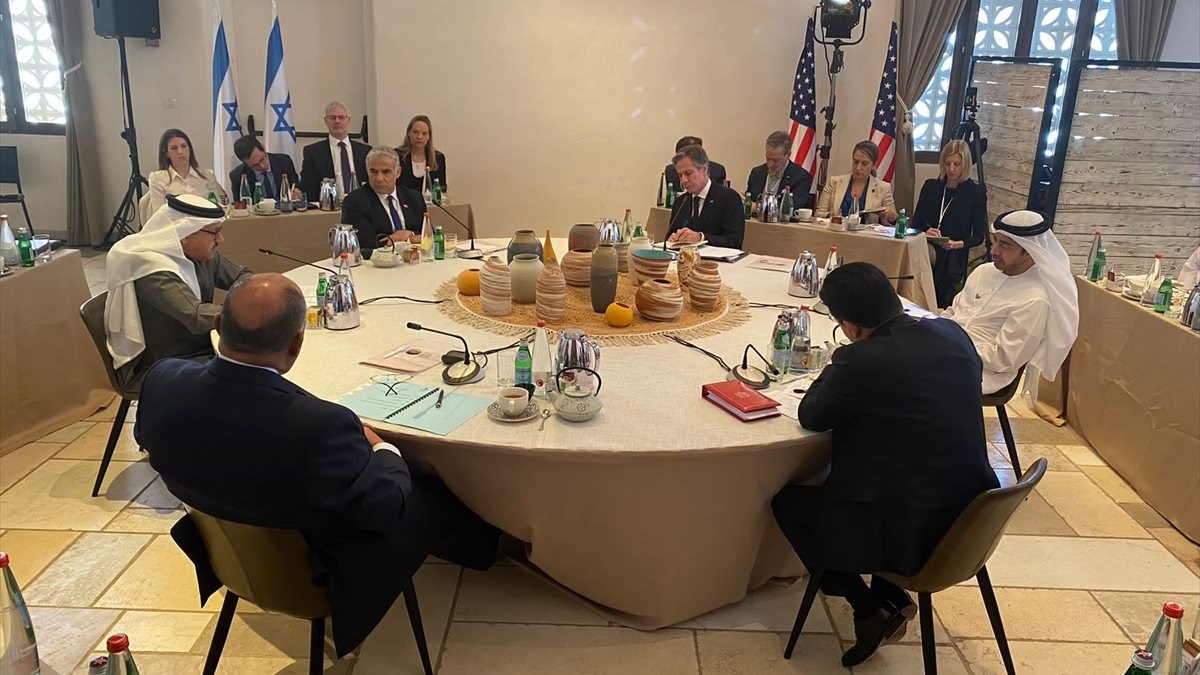Iran denounces Al-Naqab Summit, any attempts at normalization
Iranian Foreign Ministry spokesperson says the Al-Naqab Summit is a meeting for the traitors of the Palestinian cause with the oppressors of occupied Al-Quds.
-

The Arab, Israeli, and US foreign ministers in the Al-Naqab Summit, occupied Palestine, on March 28, 2022
Iran denounced on Monday the Al-Naqab Summit, which has been attended by the foreign ministers of the US, the Israeli occupation, Bahrain, Morocco, and Egypt.
The meeting, Iranian Foreign Ministry spokesperson Saeed Khatibzadeh said, was that of "the traitors of the Palestinian cause with the oppressors of occupied Al-Quds."
"Any attempt to normalize relations with the Zionist terrorist and the occupiers of Al-Quds is a knife in the back of the oppressed Palestinian people and a blessing for the Israeli occupation that is killing children, carrying out massacres, and occupying Palestinian land," Khatibzadeh stressed.
History has proven that settling and surrendering to the Israeli occupation brought nothing but defeat and humiliation to the people of the country normalizing ties with "Tel Aviv," he added.
Khatibzadeh also warned against strife and the evils of the Israeli occupation in the region, underlining his country's readiness to cooperate and enhance bilateral relations with neighboring countries and confront the Israeli-US conspiracy trying to destabilize West Asia and sow discord and wars in the region.
Palestinian factions underscored that the Palestinian people will not serve as a bridge for the normalization of ties with "Tel Aviv", denouncing the summit altogether.
The Palestinian foreign ministry had said the Israeli occupation was rushing to Israelize occupied Al-Quds and further occupy the occupied West Bank to use it for its settlement plans.
Ahead of the meeting, Blinken said in a joint statement with his Israeli counterpart Yair Lapid that Blinken claimed that the meeting with Arab envoys "would have been unimaginable just a few years ago. What we're seeing is normalization becoming the new normal for this region and I think it's going to attract more and more countries as they see the benefits of these partnerships among so many of the leading countries of the region."

 2 Min Read
2 Min Read








